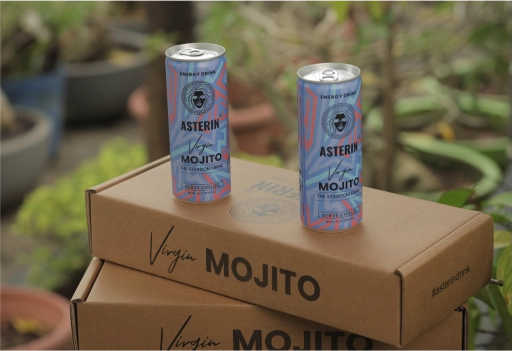Introduction
The beverage industry is evolving rapidly, with new brands entering the market every day. One of the easiest and most cost-effective ways to launch a beverage brand is through white labeling. White label beverages allow businesses to sell pre-manufactured drinks under their own brand name, eliminating the need for expensive product development. In this article, we’ll explore what white label beverages are, how they work, their benefits, challenges, and why they are a great business opportunity.
Definition of White Label Beverages
A white label beverage is a ready-made drink produced by a third-party manufacturer but sold under a different brand’s label. The manufacturing company creates the product, and other businesses purchase and market it as their own. Unlike custom product development, white labeling allows companies to introduce beverages to the market quickly without investing in research, formulation, or large-scale production facilities.
How White Labeling Works
The white labeling process is simple and efficient, enabling brands to focus on marketing and sales rather than manufacturing. Here’s how it works:
- Partner with a Manufacturer: A business selects a beverage manufacturer specializing in white label production.
- Choose a Beverage Type: The company picks from available beverage options, such as soft drinks, energy drinks, flavored water, or herbal teas.
- Branding and Packaging: The business customizes the product’s packaging, labeling, and marketing materials to align with its brand.
- Production and Quality Control: The manufacturer produces the drink under strict quality standards.
- Distribution and Sales: The brand launches and sells the product through retail stores, e-commerce, or distribution partners.
Differences Between White Label and Private Label Beverages
White label and private label beverages are often confused, but they have key differences:
- White Label Beverages: These are pre-formulated, mass-produced drinks that multiple brands can sell under their own label with minimal customization.
- Private Label Beverages: These are created specifically for one brand, with unique formulations and exclusive rights to the product.
White labeling is ideal for businesses looking to enter the market quickly, while private labeling offers greater exclusivity and customization.
Benefits of White Labeling for Beverage Brands
White label beverages offer several advantages:
- Speed to Market: Since the product is already developed, businesses can launch quickly.
- Lower Costs: No need for expensive R&D, manufacturing, or large production facilities.
- Flexibility: Brands can test different products without long-term commitments.
- Low Risk: Minimal upfront investment compared to creating a new product from scratch.
- Focus on Branding: Businesses can put more effort into marketing and customer engagement instead of production.
Who Should Consider White Label Beverages?
White label beverages are an excellent choice for:
- Entrepreneurs and Startups: Those looking to enter the beverage industry without high costs.
- Retailers and E-commerce Stores: Businesses that want to expand their product offerings under their own brand.
- Health and Wellness Brands: Companies selling functional drinks, detox beverages, or organic options.
- Established Brands: Companies looking to test new beverage categories before investing in full-scale production.
Challenges of White Labeling
Despite the benefits, white labeling comes with some challenges:
- Limited Product Differentiation: Since multiple brands can sell the same product, standing out can be difficult.
- Brand Reputation Risk: Poor-quality products from a manufacturer can harm a brand’s credibility.
- Supplier Dependence: Brands must rely on the manufacturer for production, quality control, and supply chain efficiency.
- Regulatory Compliance: Businesses must ensure that the manufacturer follows industry regulations and labeling laws.
To mitigate these challenges, businesses should choose reputable manufacturers, focus on strong branding, and build solid customer relationships.
Case Study: A Successful White Label Beverage Brand
One great example of a successful white label beverage brand is Vitaminwater. Originally developed by an independent company, the brand leveraged white label manufacturing to enter the market quickly. By focusing on branding, packaging, and marketing, Vitaminwater became a household name before being acquired by Coca-Cola. This demonstrates how a strong brand strategy can turn a white label product into a multi-million-dollar business.
Conclusion
White label beverages offer a fantastic opportunity for businesses looking to enter the beverage industry quickly and affordably. With lower costs, reduced risks, and increased flexibility, brands can focus on marketing and sales rather than production. However, to succeed, businesses must select the right manufacturers, invest in branding, and differentiate themselves in a competitive market.
If you’re considering starting a beverage brand, white labeling could be your best path to success!
FAQs
1. Are white label beverages profitable?
Yes! White label beverages reduce manufacturing costs and allow businesses to focus on branding and sales, making them a profitable venture.
2. What types of drinks can be white labeled?
Common options include energy drinks, flavored water, sports drinks, herbal teas, and organic beverages.
3. How do I find a good white label beverage manufacturer?
Look for manufacturers with industry certifications, strong quality control processes, and good reviews from other brands.
4. Can I customize the formulation of a white label beverage?
Most white label manufacturers offer minimal customization, but for unique formulations, private labeling is a better option.
5. What is the biggest challenge with white label beverages?
Brand differentiation can be difficult since multiple companies may sell the same product. Strong branding and marketing are essential for success.
